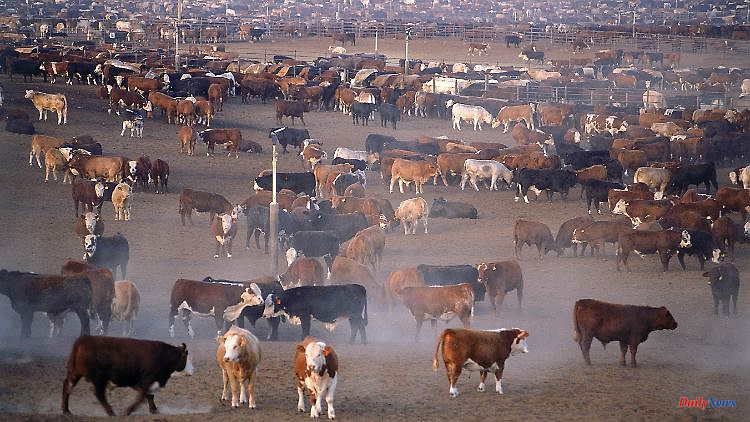Food is essential for human survival. At the same time, current food production is driving climate change. By the year 2100, this sector could contribute almost a degree of temperature increase, researchers estimate. But they also have an idea of what to do about it.
A new study has revealed disturbing findings about how our diet contributes to climate change: by 2100, what ends up on people's tables could help warm the planet by up to 0.9 degrees Celsius - in addition to adding about one degree since the beginning of industrialization. The good news: With targeted measures, this value could be reduced by about half, according to the study published in the journal "Nature Climate Change".
The scientists had analyzed current research results and their own model calculations. "Agriculture may be responsible for about 15 percent of current warming," they write.
Because of the usual conversion of all greenhouse gases into equivalents of carbon dioxide (CO₂), the mode of action of the individual greenhouse gases has not been recorded precisely enough, they complain. This applies above all to methane, almost half of which comes from agriculture. Although methane is largely degraded in the atmosphere after 10 years, it is more than 100 times more effective as a greenhouse gas than CO₂. Ivanovich and colleagues write that because CO2 equivalents are usually calculated for a time horizon of 100 years, the short-term global warming potential of methane is underestimated.
The research team led by Catherine Ivanovich from Columbia University in New York City projected the effect of today's food system on global warming under five different population scenarios. Based on an extensive literature review, they compiled a detailed inventory of current greenhouse gas emissions for 94 different foods. They found that food production could add almost a degree to global warming by the end of the century. Methane is responsible for almost 60 percent of the warming, while carbon dioxide and nitrous oxide each account for about 20 percent.
The good news: "However, there is significant potential for reducing emissions through available changes in production practices, consumption patterns, and food losses and waste," the team writes. A more climate-friendly production of meat, dairy products and rice alone could help save about a quarter of the forecast temperature increase of 0.9 degrees.
Another promising measure is the implementation of scientific nutritional recommendations in the world population - such as a low consumption of beef and a moderate consumption of fish, poultry and eggs. Further measures are the targeted climate-neutral energy supply by 2050 and a 50 percent reduction in today's food waste. All this taken together, the projected warming could be reduced by 0.5 degrees by 2100 - the increase would then be 0.4 degrees instead of about 0.9 degrees.












